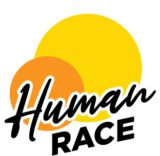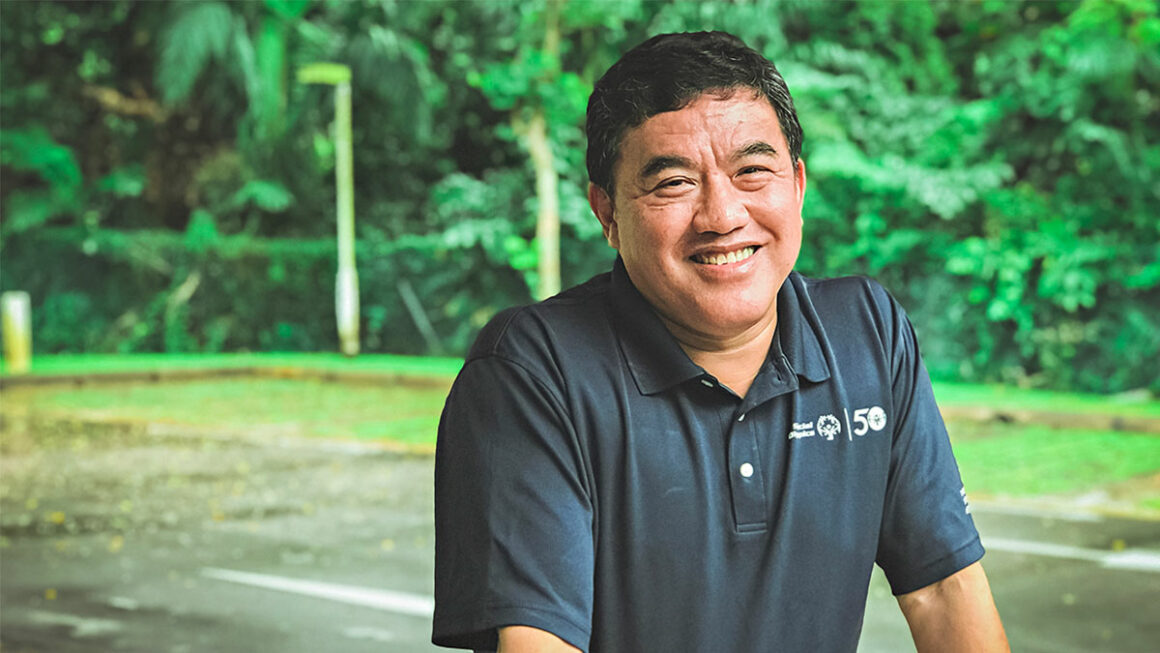I am constantly inspired and awestruck by how our athletes can achieve greatness.
I have spent 20 years with the Special Olympics movement, but there is one encounter from early on in my career that sticks with me.
It serves as a constant reminder of why we exist as an organization, and why I’m here.
I remember coming home late one night to find an elderly woman at my doorstep, carrying a basket of eggs. A simple gift – all she could afford – as a token of gratitude to a stranger whom she felt had helped transform the life of her granddaughter, who was born with an intellectual disability.
She told me she had taken on the responsibility of caring for the child, because her parents were constantly fighting and blaming each other for their daughter’s disability. For years, the child was seen as a burden.
Things changed after she took part in Special Olympics sports activities. She became more cheerful, outgoing and confident. For the first time, she felt accepted, made friends, and was given the chance to achieve her personal best. The transformation was life-changing not just for the child, but the entire family. It gave them hope.
I was extremely moved and humbled by her story. I knew at that moment that this was an organization I would serve with for as long as I am able to.
My first encounter with Special Olympics happened in 1993, when I was a Lions Club Governor with District 308A (Brunei, Malaysia, Singapore). I attended a Special Olympics Torch Run in Singapore to motivate local Lions Club members who were manning the water stations along the route. The event aimed to raise awareness for the movement.
Fast forward to 1998, to my second encounter with Special Olympics. One of the leaders from Special Olympics Singapore contacted the Seri Mengasih Centre, a home for people with intellectual disabilities in Kota Kinabalu, Sabah, to invite volunteers to take part in a coach training activity. When the volunteers returned to Malaysia after the training, they were on fire! They were convinced about the power of sports as a positive force for people with intellectual disabilities, and were inspired to organize activities in their communities.
During that period, the Seri Mengasih Centre was in constant contact with the Lions Club, as they were in need of funding. It got me thinking about how I could help them not just with funds on an ad-hoc basis, but in a more long-term, sustainable way.
So in August 1998, I seconded myself from the Lions Club to help the center organize the first sports meet for their clients. Initially, it was an event planned for 92 athletes. But word spread, and before we knew it, it had mushroomed to the entire state of Sabah, with 268 participating athletes from more than 10 institutions. It was the first ever Special Olympics State Games in Malaysia.
Through sponsorships and donations, we managed to raise more than we needed for the Games, with over 8,000 ringgit in excess. With the extra money, we decided to officially start a Special Olympics entity in Malaysia. I was elected the first chairman of Special Olympics Sabah in 1998.
Over the next two years, my team and I spread the word about Special Olympics to other states in the country, and by 2000, we had successfully formed Special Olympics Malaysia. I was elected to be their founding chair.
I left when my term expired after two years to take on a consultant role with Special Olympics Asia Pacific. Back then, there were only 11 countries with a Special Olympics entity in the region. I never imagined that today, 16 years later, we would have tripled the number of countries to 33. We now have a presence in countries ranging from Afghanistan to the most remote parts of the Pacific, including Micronesia, Marshall Islands and Palau.
Throughout my personal journey with Special Olympics, the life-changing stories I hear from athletes and their families have been nothing short of extraordinary.
Sports is our engine, but inclusion is our ultimate goal. Not many people know this about us, but we are so much more than just a competitive sports organization. Lesser known but extremely important aspects of the movement include early childhood development, and providing our athletes access to quality healthcare.
I remember a track athlete from the Asia Pacific region, who used to come in second at all the meets she took part in. Her performance was puzzling to her coaches. At one of the Games, she went through the Special Olympics Healthy Athletes Opening Eyes screening (for vision and eye health), and was diagnosed as having a problem with her eyesight. She had consistently come in second because she couldn’t see clearly, and needed to tag the runner in front of her. For years, her condition was left uncorrected because there are simply not enough medical experts who are trained to treat people with intellectual disabilities. We corrected her eyesight, and she finally clinched her gold medal.
I am constantly inspired and awestruck by how our athletes can achieve greatness, so long as we create an inclusive environment where they are given the right support. It is also heartwarming to witness how much it means to athletes and their families when they are recognized for their efforts.
There was a track athlete from the Philippines who would not take off her medal for days after coming in third at the National Games in Marikina. I was told that she ate, slept and showered with her bronze medal. It may seem like a funny story to you and I, but the point is, to be recognized and celebrated means the world to our athletes and their families.
Very often, in the larger community, they are not given the respect, acceptance and recognition that they truly deserve. The ripple effect of this recognition extends to their families, and gives their parents hope and confidence. They stop seeing their children as a “burden”, and start seeing their potential.
Clearly, the world is hungry for a movement like Special Olympics, and we need all the help we can get to touch the lives of even more athletes.
My hope is that governments around the world are able to offer more support to people with intellectual disabilities in all aspects of their lives – access to quality healthcare, education and employment, so that they can fulfill their potential and contribute to society.
I also hope to recognize our volunteers in a more systematic and holistic way, and to provide more professional training and leadership pathways for them. Volunteers are the backbone of our movement in many parts of the world, and we cannot do without them.
The journey forward for inclusion is a long and arduous one. It will take years, generations, for widespread shifts in attitudes to happen. But every life we impact, every story we tell, is a step in the right direction, and we must press on.
Simon Koh is the former President and Managing Director of Special Olympics Asia Pacific.

